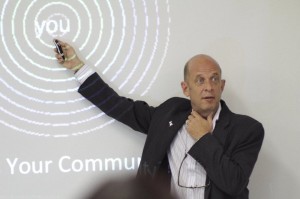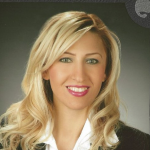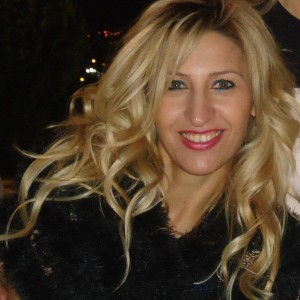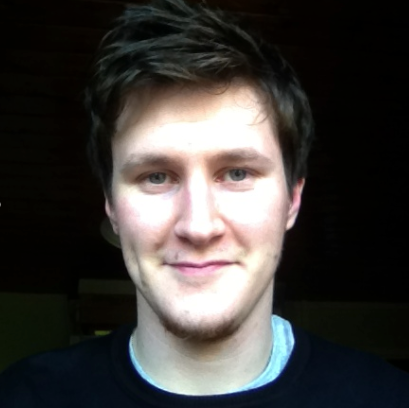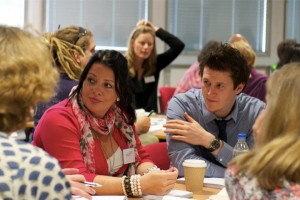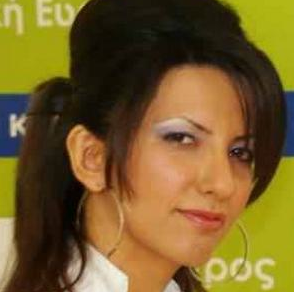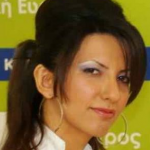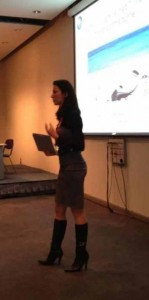 My name’s Ratnavathy Ragunathan, and I am Malaysian. I’ve been teaching for the past 5 years at International House (IH) Malaysia. I’m currently residing in Ulsan, South Korea due to the nature of my spouse’s job. I love traveling, singing, and being an avid vegetarian, experimenting with various vegetarian cuisines from around the world. I’m passionate about teaching and learning, and believe that if we open our minds, the world becomes our teacher.
My name’s Ratnavathy Ragunathan, and I am Malaysian. I’ve been teaching for the past 5 years at International House (IH) Malaysia. I’m currently residing in Ulsan, South Korea due to the nature of my spouse’s job. I love traveling, singing, and being an avid vegetarian, experimenting with various vegetarian cuisines from around the world. I’m passionate about teaching and learning, and believe that if we open our minds, the world becomes our teacher.
What are you passionate about, Ratnavathy?
This is a rather interesting question, I must say. Well, there are quite a number of things that I’m passionate about, and one of the list toppers is traveling. I’ve been traveling from a very young age, despite most of my adventures being vacation trips with families or friends. I find traveling to be such an enriching eye and mind opener to the various cultures and lifestyles of the world. It has helped define who I am as an individual and reaffirm my beliefs of the culture and tradition that I belong to.
Traveling has also greatly helped shape my teaching beliefs and approaches, which leads to the second thing that I’m passionate about – teaching. To me, teaching is about having the power to nurture and mold the creative and critical thinking faculties of learners, which play an influential role in the development of their characters. I’ve been very fortunate to work with learners from many parts of the globe. Hence, one of the most important insights that I’ve gained is the fact that learners are learners, no matter where they come from. Never judge them based on the picture that the media paints about them or their countries. Each learner is a unique and worthy individual fully capable of achieving what he aims to achieve. However, above all that’s been said, what inspires me most about teaching is the fact that I can help to make that very change that awakens a learner from within.
How and why did you become a teacher?
I would say that I “stumbled” into being a teacher and later realized that I actually enjoyed it! I was initially working as a Senior IT Executive at a multinational organization, earning a good salary with great employment benefits. But, deep down, I was very unhappy. It felt like no matter how hard I tried, I just could never excel as much as I wanted to. I felt like I was deceiving myself in doing something that did not suit me. One fine day, I sat down and deeply reflected on this conflict within me. I tried to identify what made me happy, and realized that I loved the English language and everything’s that got to do with it. I started going to night school to get my TESOL certification, and got a job at an English language school in Malaysia. My initial teaching days were definitely not a bed of roses. It dawned on me that being proficient in the language wasn’t a determining factor in being skilled at teaching it. So, my earliest teaching days were rather challenging as I tried to cope with my new career, identify my teaching style and nurture my skills.
Nevertheless, as time went on, I realized that I actually enjoyed teaching more than anything else, as it brought a great sense of inner satisfaction and fulfillment. There’s just something really magical about working with fresh young minds. I loved reflecting on my teaching and fine-tuning it. I became my own critique, questioning myself on lessons that didn’t work well and rewarding myself when something went well. I found that it helped me to improve by great lengths. It dawned on me that this was what I wanted to do, and in the long run I couldn’t imagine myself doing anything else.
One interesting point that I’d like to highlight is that my initial training and character development as an IT professional really helped me work diligently and professionally at my language school. Coming from an industry that banked on the importance of customer satisfaction, I kept reminding myself that my learners are my “customers”, and I must do my best to deliver my skills to them.
What are you most interested in right now?
I’ve always loved getting learners involved in fun collaborative projects where they’re required to think, pool their thoughts, work and coordinate with one another. I believe this to be a vital process that enables learners to both flourish in a new language and develop their personal characteristics and communicative skills. I also encourage my learners to question what they’ve learned and voice their opinions confidently. Thus, most of my classroom tasks are designed with the underlying objective to build and increase learner confidence in using the language, even at the lowest levels. It truly inspires me to watch learners using the language to discuss and provide supporting explanation for their arguments in their best possible English. The more learners communicate, the more confident they become. I’m also interested in designing competitive language games because I find that learners have a lot of fun participating in them. Despite numerous past studies that have provided conflicting evidence in using competitive means in language learning, in my case, I find that learners have lots of fun and thoroughly enjoy competing with one another. The fact that I’ve joined several public treasure hunts in Malaysia has helped me so much in designing these language races. Another amazing discovery I made from these races was how much the reticent learners in my class actually enjoyed participating! To my surprise, they really did give their best and worked very well together with their teammates!
Apart from classroom teaching, I’d also like to share my experiences on “successful classroom activities and ideas” in the form of workshops, as many teachers I know are very keen in participating in “hands-on” workshops about ideas and tasks which have worked well in the classroom. I’ve recently started conducting training workshops, both online and offline, and found it to be a whole new experience. Technology is amazing, I must say! However, since I moved to Korea, I’ve not been able to conduct any workshops, but am looking forward to a few that have been lined up in the near future.
Another thing that I’m really interested in is to meet like-minded ELT professionals from around the world to share experiences as well as empower ourselves via conferences and discussion groups. There are a number of conferences coming up in Korea in a few months, and I’m really looking forward to participating in them. I’ve also been recently introduced to #KELTChat and KOTESOL by Josette LeBlanc, and am in the midst getting accustomed to using it (sadly and regretfully, I’m not so much of a twitter person but I guess it’s time to change!).
What things do you do to help you get better at being a teacher, Ratnavathy?
I remember one experience that was a true ‘eye-opener’ in my teaching career; a chance I got to observe one of the most creative teachers at my language school. It was an experience I’d never forget! Observing him was almost like a revelation in my teaching career about exactly what I needed to do as a teacher. And things were never the same again in my classroom! So yes, I really find peer observation to be an opportunity for teachers to observe, learn and help one another in improving our individual classroom practices. I personally feel that observing my peers can be very resourceful and inspiring, and most importantly set two primary, yet simple reminders: things I should do and things I shouldn’t do as a teacher in the classroom!
I’m also a very reflective person by nature. Reflecting on my teaching has been so beneficial to me that it has helped me constantly in improving myself as a teacher. I write my reflections about my classroom practices in a diary on a weekly basis, making notes on successful lessons and unsuccessful lessons, my learners and my observations on them, and generally, every other thing that happens in my classroom. My diaries were more of a conversation with myself, in which I questioned how and what I could possibly do to further improve my teaching. Sometime in the near future, I might start a blog on my teaching reflections (which I should have done a long time ago!)
And of course, last but surely not least, is just talking to my learners. Sometimes, as teachers, we feel that we know exactly what needs to be taught. But we need to remind ourselves that what we want to teach is probably not what the learners want to learn! I’ve always made it a point to have informal discussions with my learners just to get a grasp of their background, language learning aims, source of motivation and what they look forward to learning in the classroom. I find that learners sometimes have some wonderful ideas that I’d never have thought of myself!
What’s the biggest challenge you face as a teacher?
To continuously come up with new, dynamic, fun, stimulating and engaging lessons in the classroom! Each learner is uniquely different from one another, with varying needs, motivation, and aims for learning the target language. Sometimes I find it quite challenging to find a single “common” theme that the whole class is interested in. And that’s the reason why I see the need to have informal chat sessions with my learners on a constant basis just to keep me on track
What advice would you give to teacher just starting out on the journey of professional development?
Constantly experiment with new teaching ideas and techniques in the classroom. It’s always about experimenting, reflecting, refining, fine-tuning, and re-experimenting again. Fret not, and never give up, there’s always light at the end of the tunnel! Also, constantly observe and be observed in the classroom by experienced teachers; be open to constructive criticism given by them and put some deep thought into their feedback. It will really help you unfold as a teacher. Most importantly:
a) learning is a life-long process; always strive to continuously develop your skills
b) participate in and present at ELT conferences, it will open up a world of knowledge to you!
c) read, read, and read! Be it teaching resource books, the Internet, or teaching blogs.
d) always ask yourself, “if I’m a learner in this lesson, will I enjoy it and find it engaging?”
Ratnavathy, is there any online link or blog you’d like to recommend?
I read lots of online blogs, but other teachers have already mentioned most of them. However, there are some really good websites I’d like to recommend:
http://www.writefix.com – fantastic resource for academic and exam-based writing, lots of examples and techniques that are explained well.
http://www.busyteacher.org– lots of ideas, worksheets, resources, games that teachers can use in the classroom.
What’s your favorite quotation about being a teacher?
“… And the true teacher is the learner.” – Elbert Hubbard

